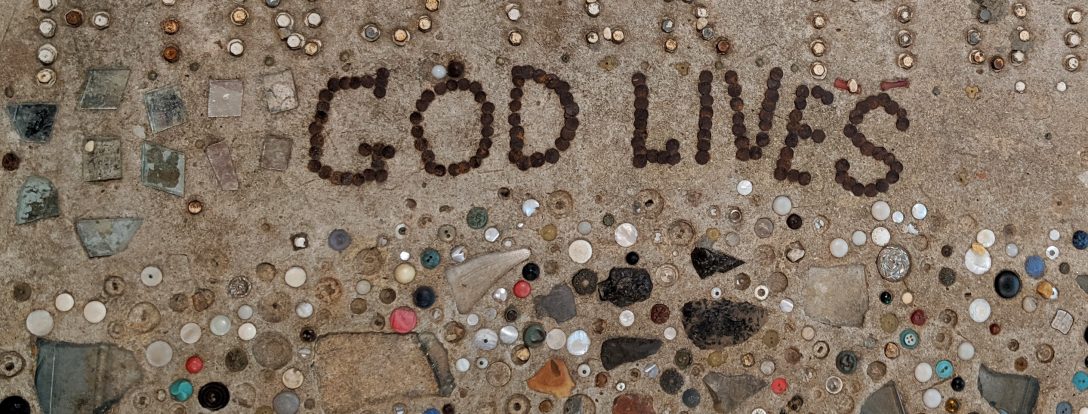“The New Colossus” by Emma Lazarus
Not like the brazen giant of Greek fame,
With conquering limbs astride from land to land;
Here at our sea-washed, sunset gates shall stand
A mighty woman with a torch, whose flame
Is the imprisoned lightning, and her name
Mother of Exiles. From her beacon-hand
Glows world-wide welcome; her mild eyes command
The air-bridged harbor that twin cities frame.
“Keep, ancient lands, your storied pomp!” cries she
With silent lips. “Give me your tired, your poor,
Your huddled masses yearning to breathe free,
The wretched refuse of your teeming shore.
Send these, the homeless, tempest-tost to me,
I lift my lamp beside the golden door!”
This poem makes me emotional. Embossed on a bronze plaque inside the Statue of Liberty’s base in New York Harbor, it articulates a beautiful ideal for the US: we are a welcoming refuge for those whom the world deems “wretched refuse,” and therein lies our strength. The first lines of the sonnet contrast Lady Liberty with the Colossus of Rhodes, a 109-foot statue of Helios, the Greek god of the sun. One of the seven ancient wonders of the world, it was erected in 280 BCE to celebrate a military victory. True to its purpose, it was given a fearsome, “Behold our power!” sort of stance.
Liberty has an imposing presence as well, but it’s tempered with “mild eyes” and the epithet “Mother of Exiles.” Maternal love is her stance. I care nothing for riches and glory, she tells the other nations. Send me, instead, the weak, the destitute, the hurting. My light is always on, inviting them to enter in and stay.
Lazarus’s poem is thoroughly in line with biblical values—which is no surprise, because she was herself Jewish. Here are just some of the verses in the Hebrew Bible that prescribe care for immigrants and affirm their rights. (The word “immigrant,” ger, is sometimes translated in scripture as “sojourner,” “stranger,” “foreigner,” or “alien.”)
Exodus 23:9: “You must not oppress foreigners. You know what it’s like to be a foreigner, for you yourselves were once foreigners in the land of Egypt.”
Leviticus 19:33–34: “When a stranger sojourns with you in your land, you shall not do him wrong. You shall treat the stranger who sojourns with you as the native among you, and you shall love him as yourself, for you were strangers in the land of Egypt: I am the LORD your God.”
Deuteronomy 10:17–19: “The LORD your God . . . loves the immigrant, giving him food and clothing. And you are to love those who are immigrants, for you yourselves were immigrants in Egypt.”
Deuteronomy 14:29: “The immigrant . . . within your towns shall come and eat and be filled, that the LORD your God may bless you.”
Deuteronomy 24:17: “You shall not pervert the justice due to the immigrant.”
Deuteronomy 27:19: “Cursed be anyone who withholds the justice due to the immigrant. . . . Then all the people shall say, ‘Amen!’”
Jeremiah 7:6: “Do not oppress the immigrant.”
Jeremiah 22:3: “This is what the LORD says: ‘Do what is just and right. . . . Do no wrong or violence to the immigrant.’”
Ezekiel 22:4, 7: “You have brought your judgment days near and have come to your years of punishment [because] . . . the foreign resident is exploited within you.”
Zechariah 7:10–11: “This is what the LORD Almighty says: Administer true justice, show mercy and compassion to one another. Do not oppress the . . . immigrant.”
Malachi 3:15: “‘I will come to you in judgment. I will be quick to testify against those . . . who refuse to help the immigrant and in this way show they do not fear me,’ says the LORD who rules over all.”
The immigrant belongs to the “quartet of the vulnerable”—along with widows, orphans, and the poor—whose cause God takes up over and over again throughout the Bible and commands his people to do likewise. “The mishpat, or justness, of a society, according to the Bible, is evaluated by how it treats these groups,” writes Tim Keller in his book Generous Justice: How God’s Grace Makes Us Just. “Any neglect shown to the needs of the members of this quartet is not called merely a lack of mercy or charity, but a violation of justice, of mishpat. God loves and defends those with the least economic and social power, and so should we. That is what it means to ‘do justice.’” Continue reading “One sonnet vs. shouted prose: Lady Liberty, Emma Lazarus, and Trump”

